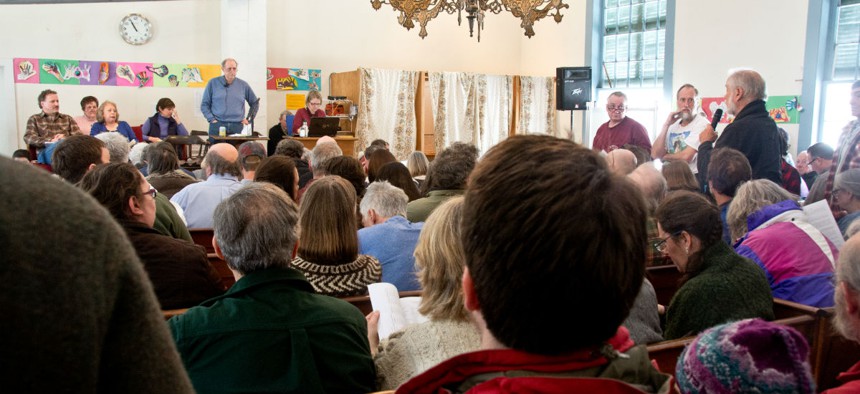
Town hall in Vermont Erika J Mitchell/Shutterstock
States and Cities Are 'Labs' for Inclusive Governance
Consulting residents helps officials manage high demand and limited resources, with less public criticism.
Local government presents increased opportunities for engaging citizens to participate in policymaking and strengthening their ability to improve outcomes, according to a new report from the Ash Center at Harvard University's Kennedy School of Government.
Truly inclusive governance requires cross-sector collaboration, writes researcher Hollie Gilman, which has the added benefit of preventing “heightened criticism and an influx of demands” from draining government resources—particularly at the local level.
Coupled with metrics showing officials are regularly consulting residents, public-private partnerships can make local government a force for civic engagement.
Per the paper:
States and cities are in fact the “laboratories of democracy.” The locality is re-emerging as a sphere for inclusive governance. One challenge is ensuring these local initiatives can be greater than the sum of their parts. Inclusive governance is not bound to only urban areas. The local level of government, broadly defined to include rural and exurban areas, provides a more manageable size for citizens to be more closely connected to the policies that impact them the most. Connecting local initiatives to the framework of national and international policy could create significant social value.
Read more at Route Fifty.
(Image via Erika J Mitchell/Shutterstock.com)







